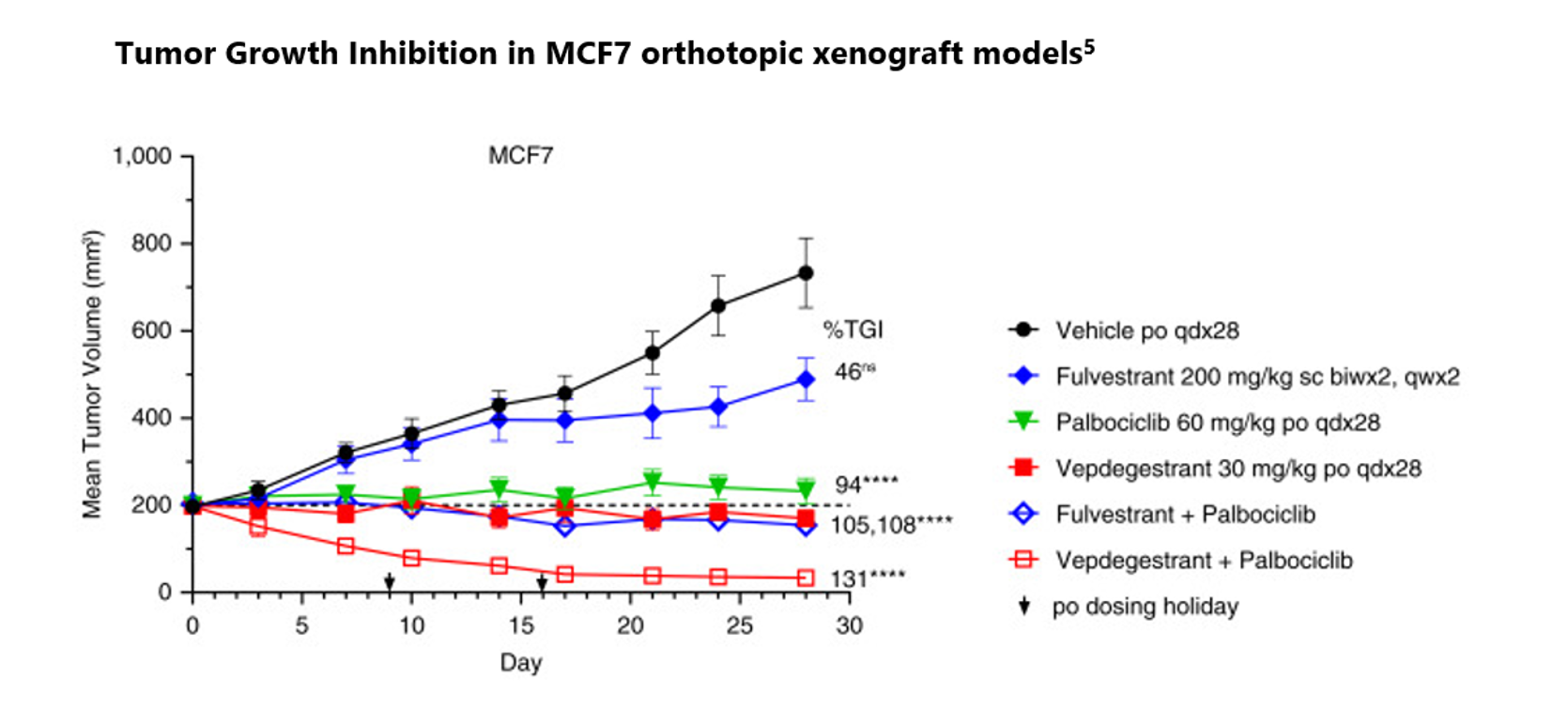Vepdegestrant (ARV-471)*
Vepdegestrant is an investigational compound. Its safety and efficacy have not been established. * Vepdegestrant is being co-developed with Arvinas.
Overview + Rationale
- Worldwide, female breast cancer has now surpassed lung cancer as the most commonly diagnosed cancer
- ~310,720 women are expected to be diagnosed with invasive breast cancer in the US in 2024 1
- Metastatic breast cancer accounts for ~6% of newly diagnosed cases
- Estrogen receptor (ER)-positive breast cancers make up ~80% of all breast cancers 2
- There is an unmet need for patients with ER-positive breast cancers who progress on endocrine therapy and CDK 4/6 inhibitors 3
- There is a need for novel agents to treat ER+ breast cancer4

- In preclinical studies, vepdegestrant:
- Induced ER degradation in ER+ breast cancer cell lines, MCF-7
- Showed promising activity against tumor growth compared to fulvestranta
- An oral daily dose of vepdegestrant induced ≥90% degradation of wild-type and mutant ER, inhibited ER-dependent breast cancer cell line proliferation in vitro, and achieved substantial TGI (87%–123%) in MCF7 orthotopic xenograft models, better than those of the ET agent fulvestrant (31%–80% TGI)
In corresponding quantitative western blots, ER was reduced by 79% and 88% in the 10 mpk and 30 mpk arms, respectively, vs. 63% for fulvestrant
a Fulvestrant schedule: 2x weekly x2 / q7dx2 nM = nanomolar; mpk = milligrams per kilogram
Mechanism of Action
- PROteolysis TArgeting Chimera (PROTAC) protein degraders are bifunctional small molecules consisting of a ligand for a target protein (the ER for vepdegestrant) and another ligand, which serves as a substrate for an E3 ubiquitin ligase complex
- vepdegestrant creates a trimer complex with the E3 ubiquitin ligase and ER to directly induce ubiquitination of ER and its subsequent proteasomal degradation

Stage of Development
ER+/HER2- Metastatic Breast Cancer
Phase 1B Combination§
Phase 1B/2 Combination
Phase 1/2 Monotherapy and Combination§
Phase 1/2 Combination
Phase 3 Monotherapy
Phase 3 Combination§
Phase 1B/2 Combination
Phase 1/2 Monotherapy and Combination§
Phase 1/2 Combination
Phase 3 Monotherapy
Phase 3 Combination§
ER+/HER2- Early Breast Cancer
Phase 2 Monotherapy§

 Back
Back

